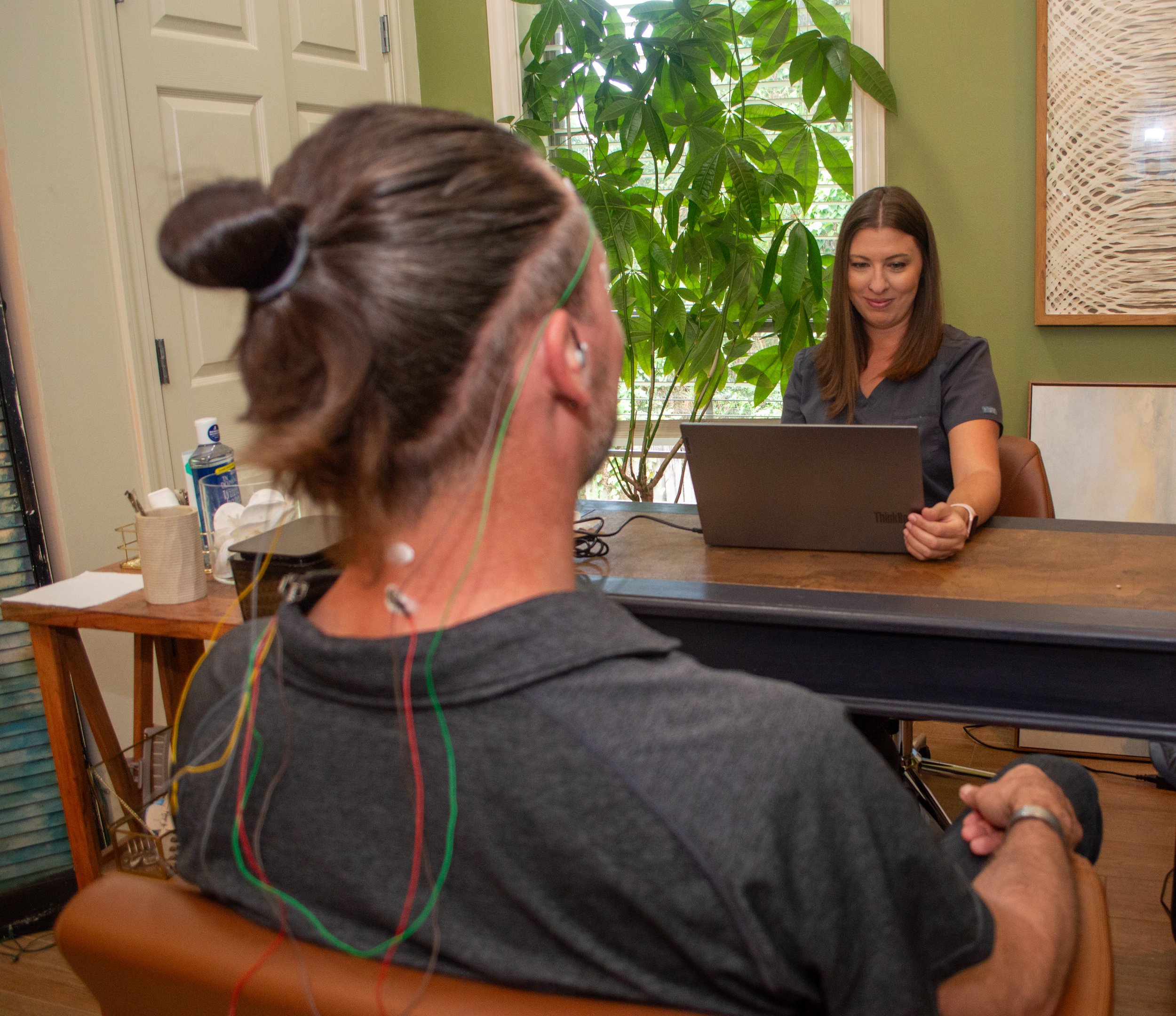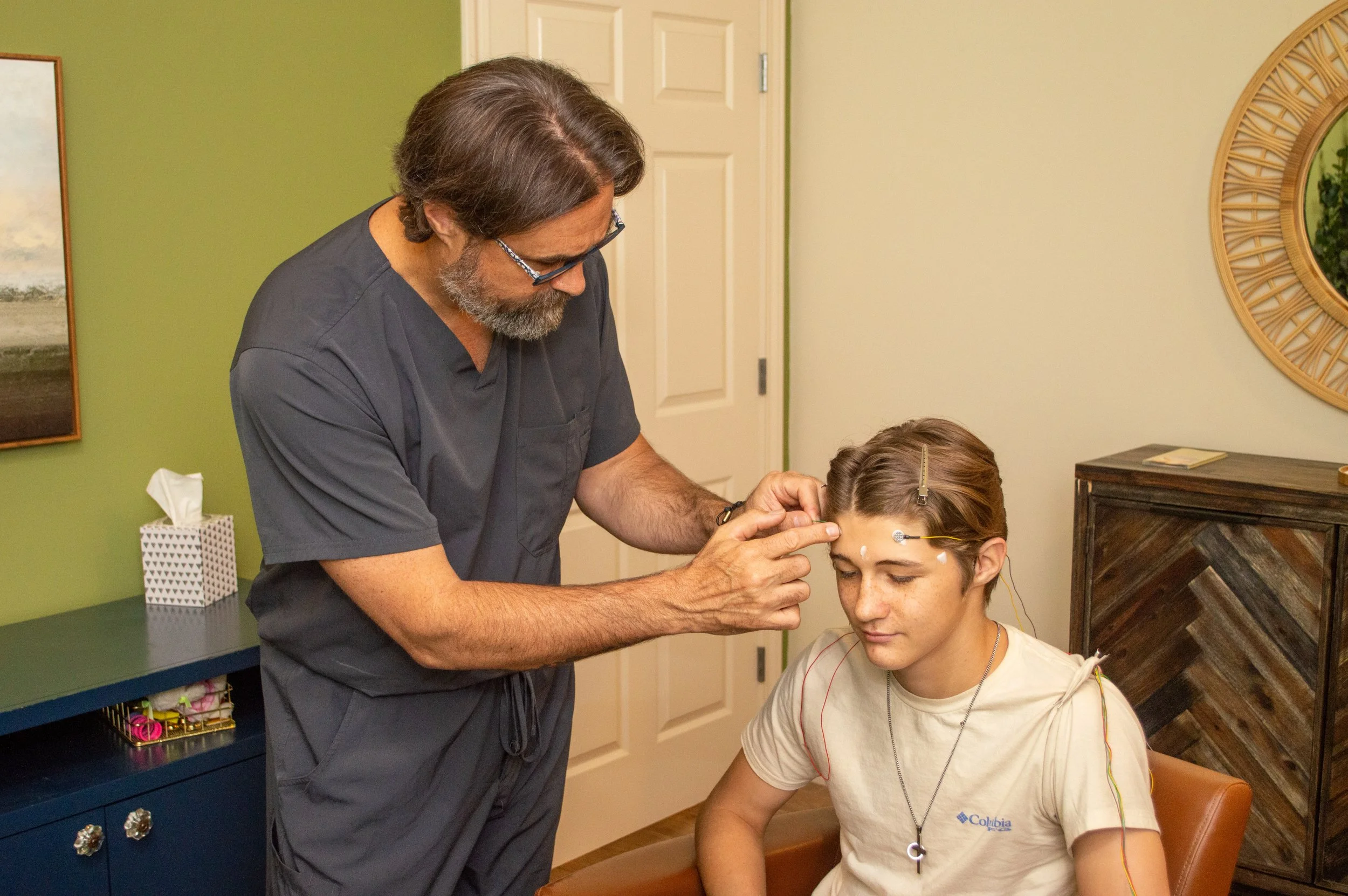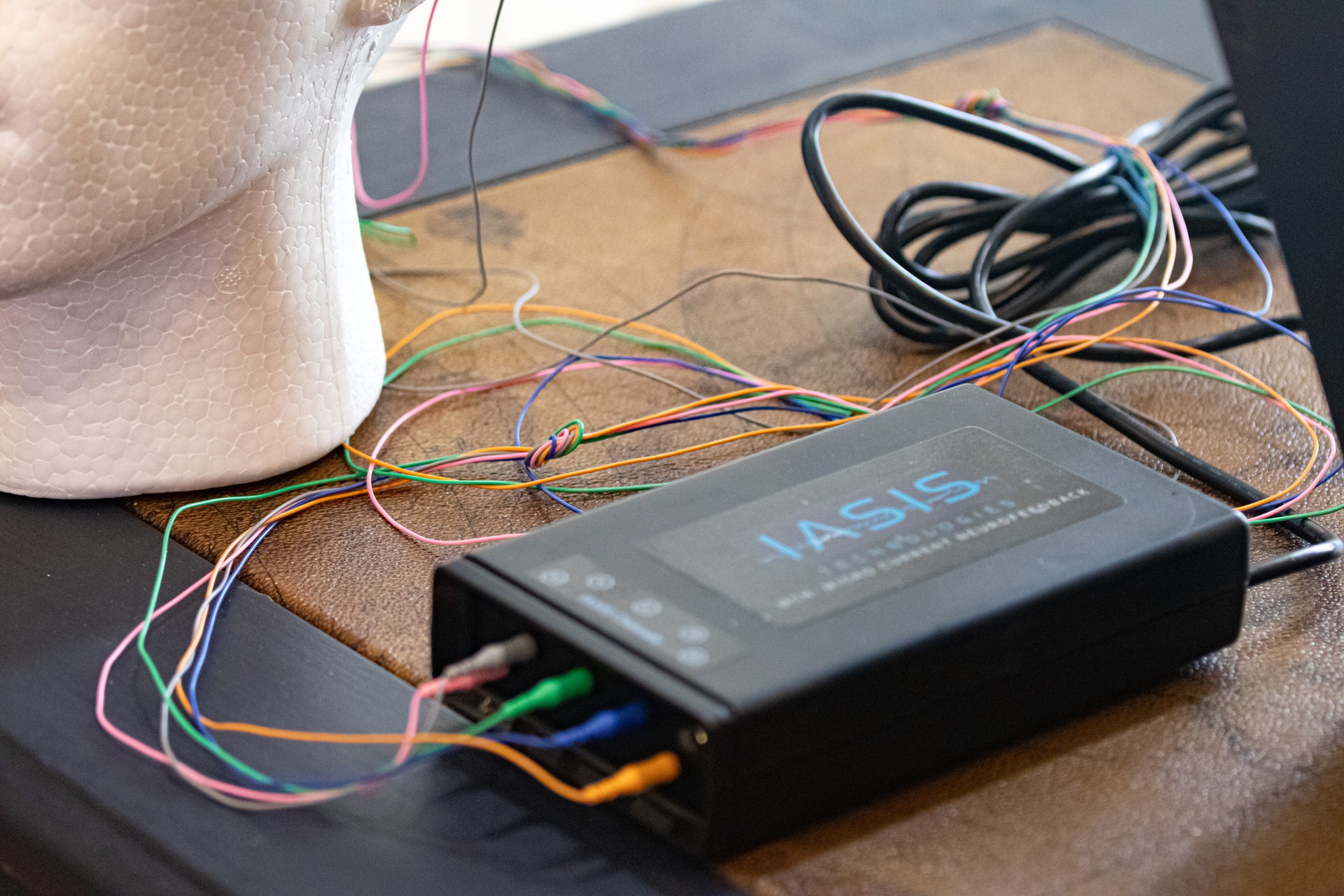Microcurrent Neurofeedback for Depression
Microcurrent neurofeedback for depression, anxiety, ADHD, OCD, PTSD and many other mental conditions, uses microcurrents to balance brain function and aid in recovery.
Roughly 5.7% of people have been diagnosed with depression.. Psychological conditions have been on the rise for years, which leaves patients feeling hopeless and like they can never feel “normal”.
Financial setbacks, social stigmas, and a lack of access to healthcare providers can make it difficult for someone to seek help; and it's made even harder when medications create unwanted side effects.
Oftentimes, these side effects can even create more problems for users.
Microcurrent Neurofeedback can be used non-invasively with little to no side effects.
What is Microcurrent Neurofeedback?
Non-invasive, calm, therapy for depression.
Microcurrent Neurofeedback uses low-intensity pulses to reflect brain waves and reset them to normal working order. The daily stresses of life can alter your brainwaves and affect your mental state.
When using MCN it is non-invasive, painless, quicker than most treatments, and has little side effects.
MCN is similar to traditional neurofeedback, however they do differ fundamentally.
With both options, sensors are placed on the patient's head to monitor brain activity in real time. With traditional neurofeedback, patients are guided through manually controlling their own brainwaves through interactive games and presentations.
MCN allows a more laid-back approach, meaning patients can arrive at their appointment and leave thirty minutes later without having to do a single thing. These appointments are quicker and less user heavy.
Evidence to Date: What Early Studies Suggest About MCN and Depression
A recent pilot study (2023) explored IASIS Microcurrent Neurofeedback (MCN) in 20 adult participants who received twice-weekly sessions over 10 weeks. The results showed significant improvements in depression, anxiety, PTSD symptoms, and overall quality of life.
Another review of EEG-based neurofeedback for depression found that while full clinical efficacy isn’t yet confirmed, many studies report measurable mood improvements and reduced depressive symptoms when neurofeedback techniques are applied.
These findings suggest MCN might be a strong complementary option to traditional treatments—especially for patients who want non-drug alternatives or whose symptoms persist. Talk therapy (or other established supports) remains important alongside MCN.
How MCN Stacks Up Against Other Treatments For Depression
When it comes to treating depression, most people are familiar with the usual options: medications, therapy, or newer approaches like TMS (Transcranial Magnetic Stimulation). Each has its place, but each also comes with drawbacks.
Easy, non-invasive, little to no side-effects therapy for depression in Baldwin County Alabama.
Antidepressants can take weeks to work, and side effects like weight gain, fatigue, or emotional “numbness” are common. Talk therapy depends heavily on finding the right therapist, and even then it takes time and effort before you feel real change. TMS is FDA-approved and effective, but sessions can be uncomfortable and it carries more risks like scalp irritation, headaches, or in rare cases, seizures.
MCN works differently. Instead of forcing your brain in a certain direction, it gently “nudges” your brain back toward balance using tiny microcurrents.
In the first published pilot study, patients who used MCN twice a week for 10 weeks reported improvements in depression, anxiety, PTSD, and overall quality of life—without the heavy side effects you’d expect from medication or the discomfort that can come with TMS.
What Patients Actually Say
Numbers are important, but real experiences often say it best. Patients describe MCN sessions as relaxing, almost like hitting a mental “reset button.”
Some notice shifts in mood within the first few sessions. Many say the environment feels safe, calm, and far less intimidating than traditional treatments.
And while every treatment comes with some risk, the most common side effects of MCN are short-lived—like a mild headache or a little fatigue right after a session. Compare that to the laundry list of potential drug side effects, and you can see why people are turning to this option.
Where Research is Headed
Right now, researchers are working on larger studies to better understand MCN’s full potential.. not just for depression, but also for PTSD, anxiety, sleep issues, and even recovery from brain injuries.
Early results are promising, and universities like the University of Texas at Tyler are leading the way in studying its benefits.
Until then, what’s clear is this: MCN is safe, gentle, and may be exactly what many patients need when the usual options haven’t delivered.
Takeaway: Microcurrent Neurofeedback as an option for Depression
MCN doesn’t have to replace medication or therapy. But for many people, it’s the missing piece—a non-invasive, side-effect-light option that helps restore balance when nothing else seems to. If you’re looking for a new way forward with depression, it may be time to talk to your provider about whether IASIS MCN could be part of your plan.



